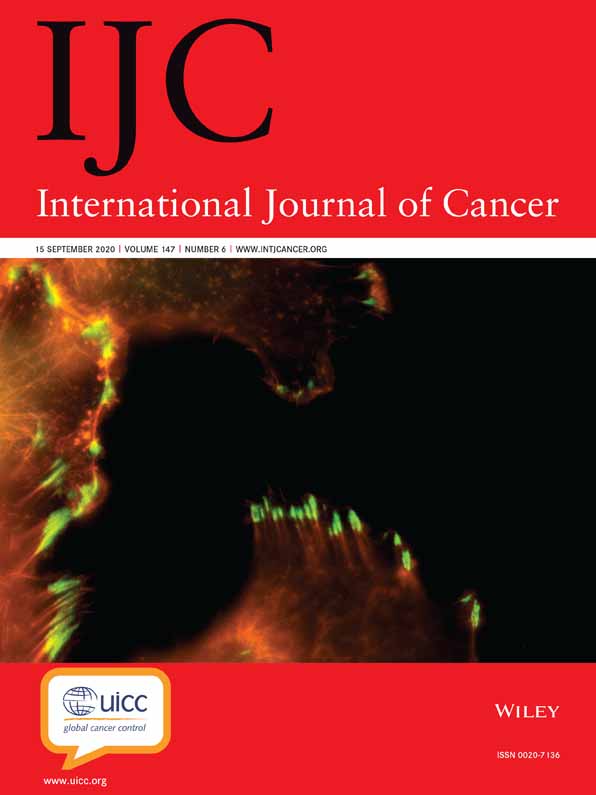Mustard oil consumption, cooking method, diet and gallbladder cancer risk in high- and low-risk regions of India
Abstract
The current study aimed to investigate the role of cooking with mustard oil and other dietary factors in relation to gallbladder cancer (GBC) in high- and low-incidence regions of India. A case–control study was conducted including 1,170 histologically confirmed cases and 2,525 group-matched visitor controls from the largest cancer hospital in India. Dietary data were collected through a food frequency questionnaire. For oil consumption, we enquired about monthly consumption of 11 different types of cooking oil per family and the number of individuals usually sharing the meal to estimate per-individual consumption of oil. Information about method of cooking was also requested. Odds ratios (ORs) and 95% confidence intervals (CIs) quantifying the association of GBC risk consumption of different types of oil, method of cooking, and dietary food items, were estimated using logistic regression models, after adjusting for potential confounders. High consumption of mustard oil was associated with GBC risk in both high- and low-risk regions (OR = 1.33, 95% CI = 0.99–1.78; OR = 3.01, 95% CI = 1.66–5.45), respectively. An increased risk of GBC was observed with deep frying of fresh fish in mustard oil (OR = 1.57, 95% CI = 0.99–2.47, p-value = 0.052). A protective association was observed with consumption of leafy vegetables, fruits, onion and garlic. No association was observed between consumption of meat, spicy food, turmeric, pulses or with any other oil as a cooking medium. The effect of high consumption of mustard oil on GBC risk, if confirmed, has implications for the primary prevention of GBC, via a reduced consumption.
Abstract
What's new?
This is the first large study to investigate the effect of high consumption of mustard oil and its differential effects when fresh fish is cooked by deep-frying compared to shallow-frying. In this study, the authors found that high consumption of mustard oil probably contaminated and the practice of deep frying in mustard oil was associated with an increased risk of GBC. These results have important implications for public health measures to reduce GBS risk, as well as suggesting further studies on the molecular mechanisms involved.
Conflict of interest
No authors report conflicts of interest.




